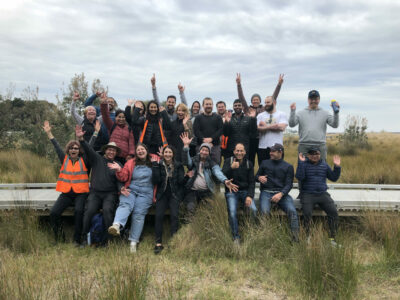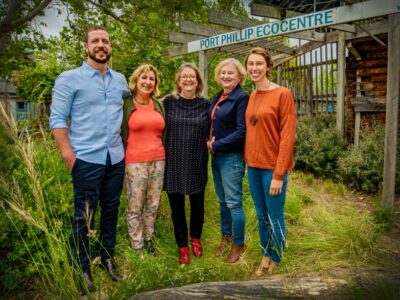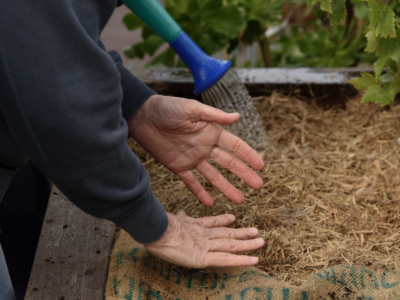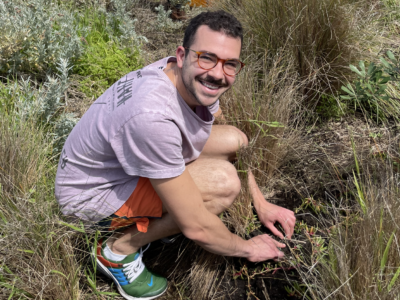By Nadav Zisin, Community Engagement Coordinator
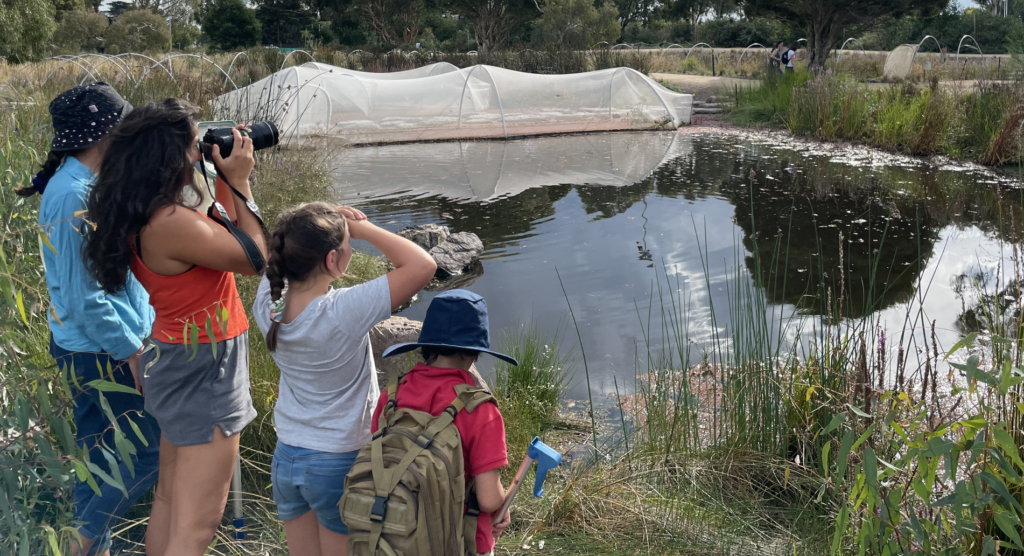
The EcoCentre’s Wetlands and Wildlife community events were part of the vibrant Nairm Catchment Care Calendar funded by Melbourne Water in 2023. The project included six community events, and seven programs tailored for different schools and for recently arrived migrants studying English. Sessions in the Wetlands and Wildlife series invited volunteers to connect and explore the wonders of wetlands and their vital role in our landscape, and to meet community groups who look after wetlands.
Every few weeks, we gathered at the idyllic Glen Iris Wetlands, nestled along Gardiners Creek. Other weeks, we helped connect community to the captivating Yalukit Willam Nature Reserve in Elsternwick, as well as the tributary waterways that flow around these reserves. Serene locations, surprisingly close to roads, provided the perfect backdrop to connect with urban waterways and deepen our understanding of wetlands.
These extraordinary ecosystems rival rainforests and coral reefs in terms of productivity and importance. Their diverse vegetation communities provide habitat for an array of magnificent and melodious birds, frogs, insects and other wildlife. Wetlands also contribute to water quality, nurture fish populations and can regulate floodwaters and surface water flow.
Why love waterbugs?
We delved into the captivating world of tiny waterbugs, a full realm hidden in plain sight. These unsung heroes hold the key to deciphering the health of our water. Through the presence, behaviour, and diversity of macroinvertebrates, we decoded how they indicate quality and balance in our precious aquatic ecosystems.
EcoCentre educators explained the vital role of macroinvertebrates and shared practical methods for monitoring and interpreting their presence. Waterbugs and familiar flying characters like dragonflies and damselflies also build essential foundations for the food chain. While having the opportunity to observe these fascinating creatures up close we learned about their unique characteristics, and understood how to read their ‘report card’ on water health.
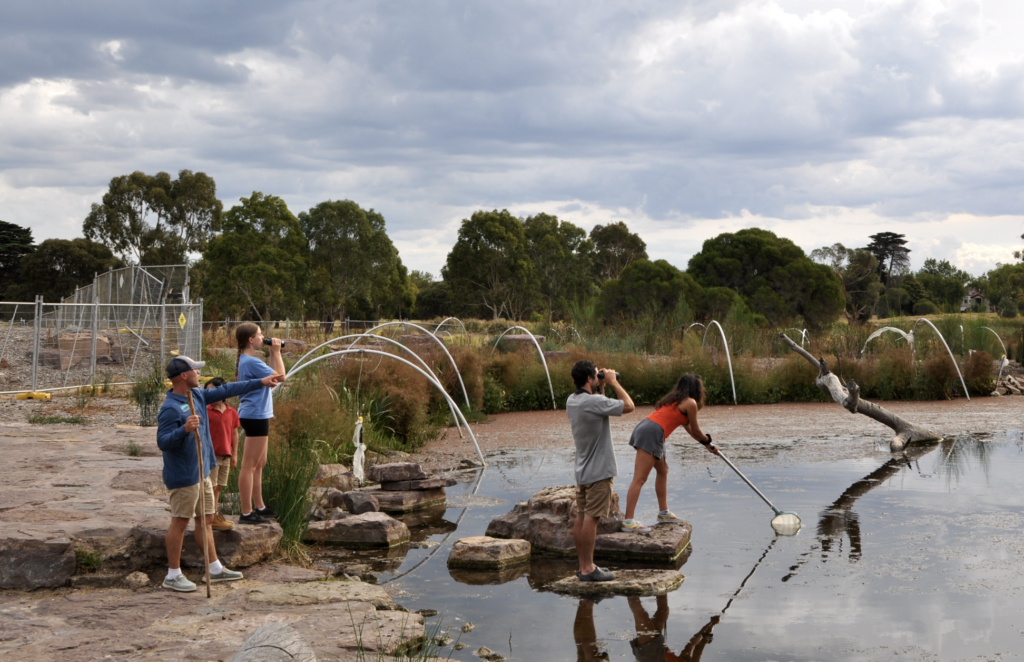
Preventable threats to waterways
Unfortunately, street litter and pollution poses a significant threat to the health of our waterways. During our events we came across many examples of how destructive rubbish litter and pollution can be for the environment. As a means to address the issue, we collected rubbish from along the creeks, streets, footpaths and gutters adjacent to high-traffic areas and sportsgrounds alongside and upstream of our waterways.
We then took our haul of litter back to the EcoCentre and used our Baykeeper Litter Audit data sheets (downloadable from our website here) to record each item down to the smallest microplastic our eyes could see, which included tiny plastic fragments and an impressive (yet very unimpressive) collection of synthetic turf strands.
As a team, we discussed practical ways our community can address these challenges. The volunteer participation in our Creek Litter Audit, Street Litter Audit, and Synthetic Turf Audit around Elster Creek, Glenhuntly Road and the Elsternwick Park Tennis & Pickleball Centre showcased local commitment to combating pollution in our waterways. By tracking and auditing litter, in many cases we are able to identify its sources and work towards implementing effective intervention strategies. Despite the ugly amount of litter we came across, we left with a feel-good vibe of tackling the problem practically, systematically and together.
Empowered for further action
Everyone had a terrific experience amongst the reserves surrounded by the autumn and winter vegetation, feathered friends, frogs and other wildlife these wetlands host. Families and individuals of all ages were inspired and enabled to become stewards of our precious natural resources, through everyday decisions or collaborating with groups like the Port Phillip Baykeeper, Friends of Gardiners’ Creek and Yalukit Willam Nature Association. We delved into solution-focused conversations and through these, gained valuable insights on how to protect and restore the health of our waterways.
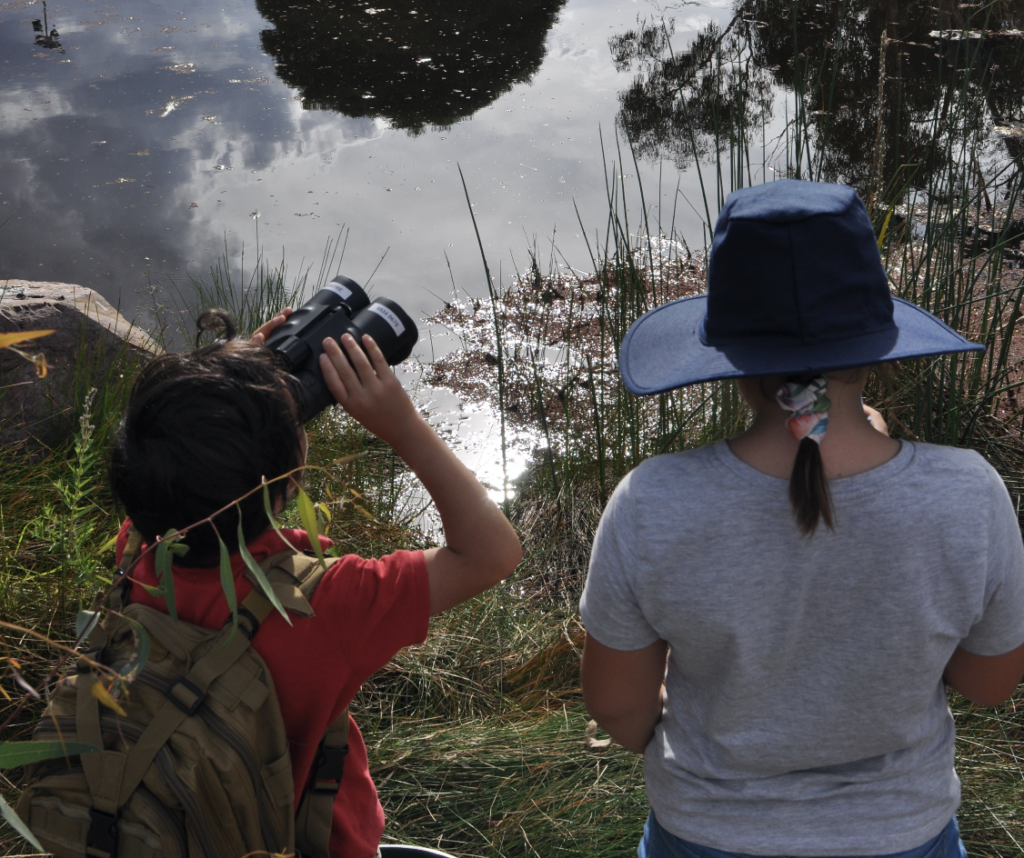
Thank you to the hundreds of Wetlands and Wildlife volunteers (both old hands and first-timers) with dedication to our common cause of protecting water. Together, we have made a significant impact, with the generous support of Melbourne Water.
Together, we can combat the issues, map the species around us, and play a positive role in urban nature cycles and water health.
